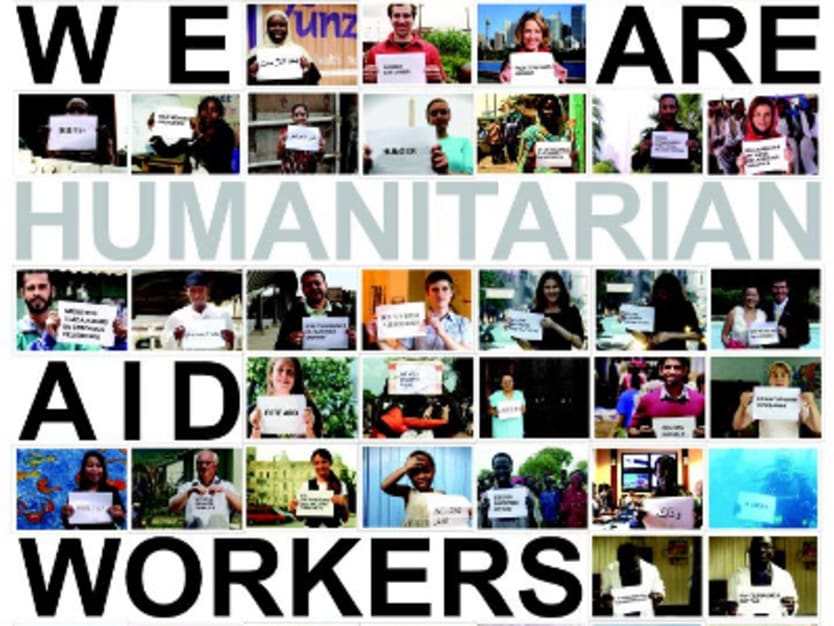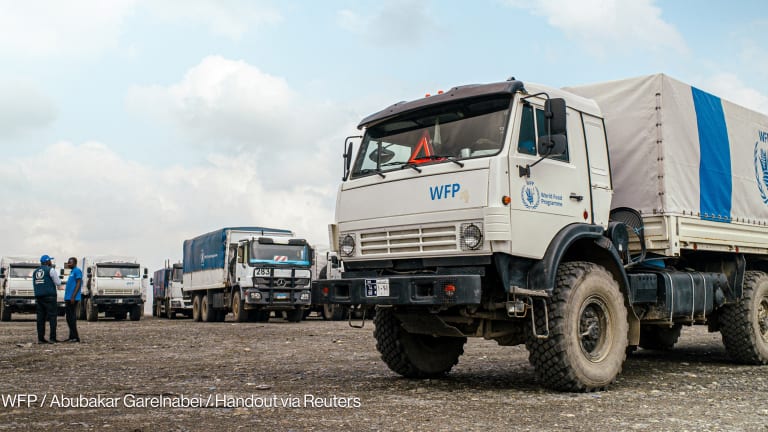
Humanitarian aid work, those engaged in it, and those who benefit from it are front and center as countries around the globe commemorate the second annual World Humanitarian Day on Aug. 19.
“On World Humanitarian Day, we renew our commitment to life-saving relief efforts – and remember those who died while serving this noble cause,” U.N. Secretary General Ban Ki-moon said in his message for this year’s commemoration.
In a resolution passed December 2008, the U.N. designated Aug. 19 as an international day for drawing attention to humanitarian needs around the world, explaining what humanitarian aid work entails, and remembering those who lost their lives in service.
That date was chosen as tribute to the 22 people who were killed in a brutal terrorist attack on the U.N. headquarters in Baghdad on August 19, 2003.
The U.N. seeks to remind the world of the four guiding principles of humanitarian work: humanity, neutrality, equality and independence.
The number of people in need of humanitarian aid because of disasters, famine and conflict are on the rise said various organizations, countries and individuals in statements marking the event. All expressed concern that majority of these needs would not be met in the coming years given the increasing pressures and challenges faced by relief workers around the world.
Humanitarian workers face danger as they respond to the needs of disadvantaged people, mostly in conflict-affected countries. Thus, targeted attacks on aid workers are common.
“In the future, the need for humanitarian aid is likely to increase. Attacks against relief organisations are most brutal to the poorest and the most vulnerable, who will be left without the aid they need,” the Finnish Ministry of Foreign Affairs noted, adding that aid worker security is increasingly becoming one of the major challenges to humanitarian work.
As Devex reported, the Overseas Development Institute noted that humanitarian work is riskier and more dangerous now, with aid workers four times more likely to get killed at present than in the 1990s.
Aid worker safety is also the main concern of the Swedish International Development Cooperation Agency.
“Never before has humanitarian work been as vulnerable as it is today. Last year, nearly 300 aid workers encountered some form of attack or violence, of which 102 persons were killed and 92 kidnapped. The most dangerous countries are Sudan, Somalia and Afghanistan,” the agency said in a statement posted on its website.
Earlier this month, 10 humanitarian health workers were shot dead in northern Afghanistan. The Taliban claimed responsibility for the ambush, which has been called the worst crime against the humanitarian community in Afghanistan, as Devex reported.
“Across the world this year, aid workers risked great danger by responding to environmental disaster. But the United States also notes with profound alarm the rise in premeditated violence targeting aid workers – including the recent murder of ten NGO workers, six of them Americans, by the Taliban in Northern Afghanistan,” said Susan Rice, the U.S. permanent representative to the U.N. “In light of these terrible acts, we condemn the persistence of insidious rhetoric by political actors who portray aid workers as outsiders representing foreign interests, governments, and ideologies.”
The perception that humanitarian aid is being delivered solely by Western groups and that it is representative of certain religions or ideologies have made aid workers targets of violence, the U.N. has explained.
Rice joins the U.N. in saying that most humanitarian workers actually come from the countries they work in.
“They are inspired by the principle of impartiality that guides all aid work, and come from a variety of nationalities, ethnicities, and religious communities. We join the global community in rejecting attacks on humanitarians, and rededicating ourselves to ensuring that aid can be delivered without fear,” she said.
As Ban put it: “On World Humanitarian Day, let us remember those in need, those who have fallen while trying to help them and those who continue to give aid, undeterred by the dangers they face — for the sake of building a safer, better world.”








